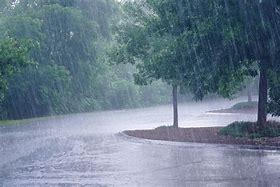
Heavy rainfall and strong winds recently wreaked havoc in Kasapee, a community in the Asunafo North Constituency of Ghana’s Ahafo Region. The severe weather conditions caused significant damage to houses, with some collapsing entirely and others losing their roofs. According to Hon. Haruna Mohammed, the Member of Parliament for the area, the destruction is largely attributed to rampant deforestation. He explained that the community’s vulnerability to wind damage has increased due to the loss of trees that previously served as a natural barrier against strong winds.
Hon. Haruna Mohammed highlighted the critical role that trees play in mitigating the impact of strong winds. In the past, when Kasapee was more forested, the area would experience strong winds without suffering such devastating consequences. The trees acted as a windbreak, reducing the force of the gusts and protecting homes and infrastructure. However, with the widespread cutting down of trees, the community is now more exposed to the full force of the wind, leading to the recent damage. The MP’s observation underscores the importance of preserving trees in communities to prevent such disasters.
In light of the recent wind damage, Hon. Haruna Mohammed is urging timber contractors and individuals involved in tree cutting to exercise caution and adhere to regulations. He stressed the importance of preserving trees in communities and emphasized that timber contractors should only operate in areas authorized by the Forestry Commission. By promoting responsible forestry practices, the MP hopes to mitigate the impact of future windstorms and protect the environment. This call to action highlights the need for sustainable forest management and the role that individuals and companies play in preventing deforestation.
The preservation of trees is crucial for maintaining the ecological balance and preventing natural disasters like the recent wind damage in Kasapee. Trees not only serve as windbreaks but also help to hold soil in place, preventing erosion and landslides. Moreover, trees play a vital role in the water cycle, helping to regulate rainfall and prevent flooding. By protecting trees, communities can reduce their vulnerability to natural disasters and promote sustainable development. Hon. Haruna Mohammed’s call for responsible forestry practices is a step in the right direction towards achieving these goals.
The recent wind damage in Kasapee serves as a wake-up call for the community to take action to prevent similar disasters in the future. By working together, residents, timber contractors, and local authorities can promote sustainable forest management and protect the environment. Community awareness and education are critical in this effort, as individuals need to understand the importance of preserving trees and the consequences of deforestation. By empowering communities to take ownership of their environment, Ghana can reduce the risk of natural disasters and promote sustainable development.
The prevention of deforestation and promotion of sustainable forest management is a collective responsibility that requires the involvement of all stakeholders. The Forestry Commission, timber contractors, local authorities, and community members must work together to protect trees and prevent the destruction of the environment. By adhering to regulations and promoting responsible forestry practices, Ghana can reduce the risk of natural disasters and promote sustainable development. Hon. Haruna Mohammed’s call to action is a reminder of the importance of collective responsibility in protecting the environment and promoting sustainable development.
The recent wind damage in Kasapee is a stark reminder of the consequences of deforestation and the importance of preserving trees in communities. By promoting responsible forestry practices and adhering to regulations, Ghana can reduce the risk of natural disasters and promote sustainable development. Hon. Haruna Mohammed’s call to action highlights the need for collective responsibility and community awareness in protecting the environment. As Ghana moves forward, it is essential that all stakeholders work together to promote sustainable forest management and prevent the destruction of the environment.
Story by: Ohemaa Adusi-Poku




